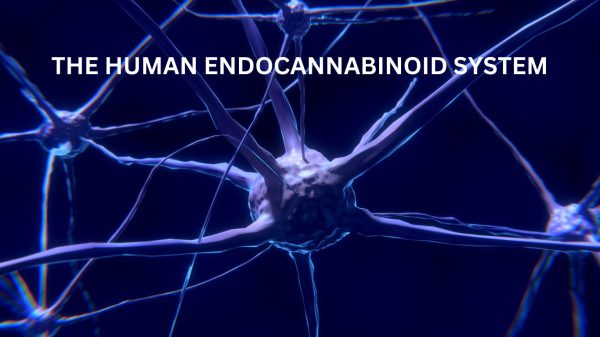Every system in the human body is made up of multiple components that all work together to ensure your entire ship functions properly. One of these systems is the endocannabinoid system (ECS). This is located in our nervous system, and plays a vital role in regulating various functions of the brain and body as a whole.
Deregulation of the ECS can lead to numerous health conditions including anxiety, sleep disorders, mood disorders, and more. Recognizing the role of the endocannabinoid system in our overall health and wellness is imperative for anyone who wants to improve their quality of life. Keep reading, today we are going to unlock the mysteries of the endocannabinoid system, and also take a look at the role of cannabinoids in the ECS.
What is the Endocannabinoid System (ECS)?
The endocannabinoid system is a network of cell receptors and molecules that help to regulate everyday body functions such as mood, sleep, appetite, pain, and immune response. It consists of endocannabinoids (naturally occurring compounds), their receptors, and enzymes that are responsible for their synthesis and degradation. The ECS helps to maintain homeostasis in the body, which is the balance between different bodily functions. It is activated by the presence of endocannabinoids or external cannabinoids, such as those found in cannabis plants. Activation of the ECS can have therapeutic effects and is being researched for its potential to treat a wide range of clinical conditions such as chronic pain, anxiety, depression, and inflammation. The ECS is also critical for reproductive processes, including egg fertilization and parturition. Altered functions in the endocannabinoid system may result in adverse pregnancy outcomes. The ECS is a fascinating system that researchers continue to explore to unlock the mysteries of the human body.
How Does the ECS Work?
The Endocannabinoid System (ECS) is a neuromodulatory system responsible for several physiological processes, including pain perception, motor and cognitive functions, inflammation, glucose regulation, blood pressure, and heart rate. It has receptors, endocannabinoids (eCBs), and enzymes that play a role in the synthesis and degradation of eCBs. Let’s take a look:
- Receptors. These are specialized proteins located throughout the body that receive signals from endocannabinoids. Two primary types of cannabinoid receptors have been identified – CB1 and CB2.
- Endocannabinoids. These are naturally occurring molecules produced by the body that can bind to cannabinoid receptors. Two primary types of endocannabinoids have been identified, namely anandamide (AEA) and 2-arachidonoylglycerol (2-AG).
- Enzymes. These are responsible for breaking down endocannabinoids after they’ve fulfilled their function.
When the endocannabinoids bind to their respective receptors, they trigger various effects that help regulate different functions within the body. For instance, when the CB1 receptor is activated in the brain, it can help reduce pain or anxiety, while activating the CB2 receptors in immune cells can help reduce inflammation.
Understanding how the ECS works and how it can be regulated is imperative for developing remedies that target various health conditions associated with ECS dysfunction. Some of these include migraines, chronic pain, fibromyalgia, depression, anxiety, etc.
What are Cannabinoids?
Cannabinoids are a group of chemical compounds found in the cannabis plant that interact with the endocannabinoid system in the human body. There are over 100 different cannabinoids found in cannabis, with the most well-known being THC and CBD . THC (tetrahydrocannabinol) is known for its psychoactive effects, while CBD (cannabidiol) is non-psychoactive and has many health benefits, including alleviating pain, anxiety, and inflammation.
What is the Role of Cannabinoids in the ECS?
The role of cannabinoids in the ECS is to interact with the cannabinoid receptors (CB1 and CB2) found throughout the body, particularly in the brain, immune system, and peripheral tissues. Cannabinoids can bind to these receptors and activate various signaling pathways that help cells and organs to function as they should.
For example, THC, the primary psychoactive compound in cannabis, binds to CB1 receptors in the brain and produces the well-known “high” associated with cannabis use. CBD, on the other hand, does not bind to these receptors but can modulate their activity through other signaling pathways.
Overall, the role of cannabinoids in the ECS is to help maintain homeostasis, or balance, in various physiological and cognitive processes. Dysregulation of the ECS has been linked to various health conditions, including chronic pain, inflammation, anxiety, and depression. As such, cannabinoids have been studied as potential therapeutic agents for these and other health conditions.
Potential Health Benefits of ECS Regulation
The ECS aims to maintain the homeostasis of the organism, keeping the body and its various systems in balance. By unlocking the mysteries of the ECS, researchers and medical professionals can potentially treat a multitude of ailments and conditions, from chronic pain to anxiety and depression. Let’s take a closer look:
- Reduced inflammation. The ECS plays a key role in regulating the immune system and reducing inflammation. This can lead to decreased pain and potentially prevent chronic illnesses such as heart disease and cancer.
- Improved mood. By properly regulating the ECS, overall mood can be improved and symptoms of anxiety and depression reduced.
- Better sleep. The ECS helps regulate healthy sleep patterns. Quality of sleep can be improved, in turn leading to energy and concentration during the daytime.
- Reduced Addiction Withdrawal Symptoms. The ECS is involved in the reward system of the brain, and may play a role in reducing the severity of addiction and withdrawal symptoms.
- Neuroprotection. The ECS has been known to have neuroprotective effects, preventing and treating neurological disorders such as Alzheimer’s and Parkinson’s disease.
- Reduced Seizures. The ECS has also shown signs of potential reducing the frequency and severity of seizures in individuals with epilepsy.
Final Thoughts
The endocannabinoid system is an intricate part of the human body. It helps to regulate a variety of functions in the body such as mood, appetite, and pain sensation. By optimizing our endocannabinoid systems we are reaching towards a healthier lifestyle that will support a wide range of physiological functions through cannabinoids, in turn making us feel more comfortable and relaxed overall. It can lead to a number of physical and mental health benefits that can change your quality of life completely.




